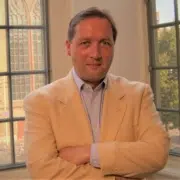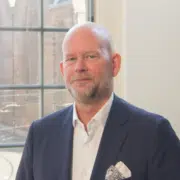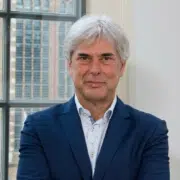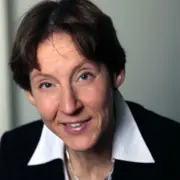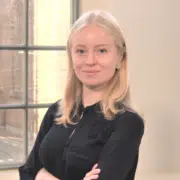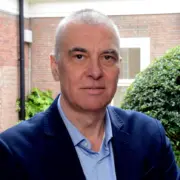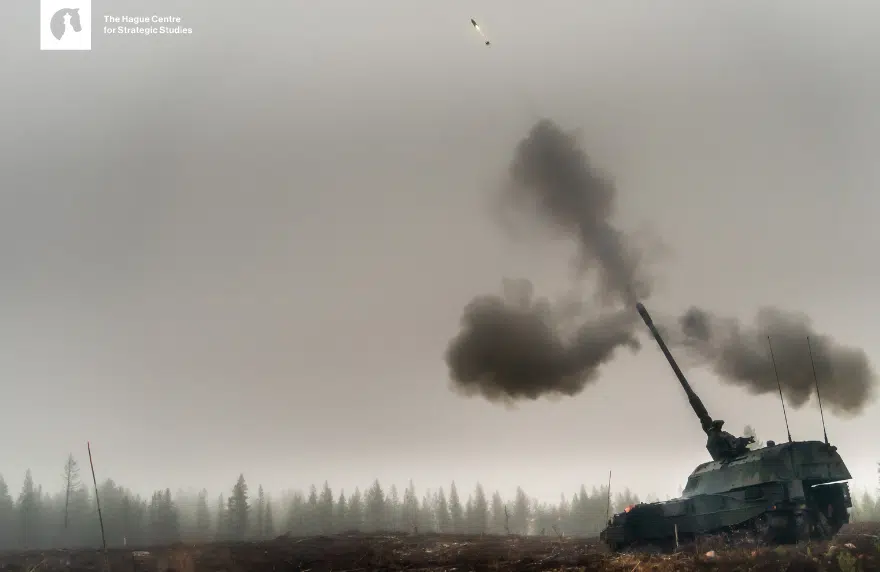We are over half-way through 2023 and HCSS has been busier that ever! In case you want to catch up on all you might have missed, this recap highlights all of our top publications, events, podcasts and videos on Russia and the war in Ukraine. Curious about older publications on Russia and the war in Ukraine? The HCSS annual report 2022 highlights all of our content from the first year of the war.
Publications

Lessons from land warfare: One year of war in Ukraine
What preliminary lessons can we learn after one year of war in Ukraine? After the Russian invasion of neighbouring Ukraine, a large-scale and even nuclear war in Europe is no longer unthinkable. In this analysis Frederik Mertens and Björn de Heer (with contributions from Tim Sweijs, Paul van Hooft and Frank Bekkers) consider land combat, given the war in Ukraine has proven predominantly about defending, conquering and retaking territory. This paper addresses the preliminary lessons for land operations that can be drawn from this war. The paper highlights that whilst the war in Ukraine is not the only template for future wars, the combination of threat and impact of this type of large-scale conventional war requires preparation for a worst-case scenario. In het Nederlands, vindt u de publicatie hier. Watch the Dutch video summary here.
A Comprehensive Strategy to secure Ukraine’s Future | The Alphen Group
As we enter the second year of Russia’s aggressive war, it is crucial to emphasise the Western objective of restoring Ukraine as a stable and independent European democracy, fully equipped with the rights and responsibilities associated with it. The Alphen Group (TAG) Ukraine Strategy 2023 aims to address the vital question of how much support from the West is necessary to bolster this objective in diplomatic, informational, military, and economic spheres. This TAG publication was supported by the Canadian Global Affairs Institute, The Hague Centre for Security Strategy, and the Norwegian Atlantic Committee.


Dancing In The Dark: The Seven Sins of Deterrence Assessment
Do NATO’s deterrence policies really have an impact on Russian behaviour? As miscalculation fears rise after a Russian fighter jet collides with a US drone over the Black Sea, how do we truly know if we understand our opponent’s signals – and they understand ours? After all, deterrence is not possible if we do not understand each other’s signals: not only must we understand our adversary, but our adversary must also understand us. This report by Tim Sweijs and Mattia Bertolini identifies seven sins of deterrence assessments. The authors subsequently respond to these seven challenges with seven maxims for deterrence assessments.
Good Fear, Bad Fear: How European defence investments could be leveraged to restart arms control negotiations with Russia
What is the potential for European investments in advanced conventional weapons that could incentivise Russia back to the negotiating table? The European nuclear arms control regime is in bad shape, due to the end of the INF Treaty (Intermediate-Range Nuclear Forces Treaty), the ABM Treaty (Anti-Ballistic Missile Treaty), the CFE Treaty (Treaty on Conventional Armed Forces in Europe), and even the START Treaty (Strategic Arms Reduction Treaty). Russia has invested heavily in new technologies and the United States wants China to be included in any future agreements, while China has shown no interest. This brief explores the potential of competitive approaches to arms control. A competitive approach to arms control is built on the assumption that an actor recognises that its long-term future security is looking progressively worse if they do not act now to stabilise the qualitative and quantitative military balance of power.


Pathways to Disaster: Russia’s War against Ukraine and the Risks of Inadvertent Nuclear Escalation
The risk of inadvertent nuclear escalation due to actions in the conventional domain is a serious, and underrated, feature of the current stand-off between NATO and Russia, following Russia’s 2022 invasion of Ukraine. This brief by HCSS analysts Paul van Hooft, Davis Ellison, and Tim Sweijs notes that NATO leaders and armed forces need to be conscious of unintended signals that can follow the placement of weapons, the movement of forces, and support to Ukraine, especially considering the deteriorating state of Russian armed forces.
Events
Defence Minister of Estonia Hanno Pevkur visits HCSS
HCSS was honoured to welcome Defence Minister of Estonia Hanno Pevkur yesterday, along with a delegation including the Dutch ambassador to Estonia Özlem Canel and the Estonian ambassador to the Netherlands Lauri Kuusing.After an introduction by HCSS deputy director Michel Rademaker, the Minister joined an informal roundtable with several of our strategic analysts. Discussions covered the highly anticipated NATO Summit in Vilnius on July 11-12 and the latest developments in the Ukraine war.Watch the Defence Ministers statement here.


Frank Bekkers & Tim Sweijs | Symposium ‘Landoptreden’: Hoe moet Rusland worden afgeschrikt?
Op 12 mei organiseerde de Koninklijke Landmacht het symposium ‘Landoptreden: Kerntaak Warfighting‘. HCSS analisten Frank Bekkers en Tim Sweijs gingen onder leiding van dagvoorzitter Mart de Kruif met lkol Michael Serné en lkol Hans van der Linden van het Land Warfare Centre (LWC) in discussie over de lessen die we kunnen trekken uit de oorlog tussen Oekraïne en Rusland.
Video Content
Transatlantic Dialogues with James Goldgeier on the United States, NATO, and Russia: Why Did Things Go Wrong, and Where Do We Go From Here?
Three decades ago, the United States and its European allies had high hopes for a new relationship with a Russia that seemed on the path toward democracy. Today, the West faces an authoritarian Russia that has committed genocide in Ukraine and is bent on undermining Western democracies. In this interview HCSS senior strategic analyst Paul van Hooft raises important questions with James Goldgeier; could things have been different, as many have argued, had the United States and its European allies followed a different approach to Russia and to NATO enlargement in the 1990s and 2000s? How will the United States and its NATO allies deter and defend against the threat Russia poses – and an ever-closer Sino-Russian relations – going forward?


Evaluating NATO Enlargement: from Cold War victory to the Russia-Ukraine War
Since Russia’s invasion of Ukraine in 2022, the enlargement of NATO (from the late 1990s to early 2000s) has been blamed for the deterioration of NATO-Russia relations, Russia’s increasing belligerence and has been used as an excuse by the Russian government for its invasion of Ukraine. So, what is the history and consequences of NATO’s post-Cold War enlargement into Central and Eastern Europe? This online seminar follows the recent publication of Evaluating NATO Enlargement: From Cold War Victory to the Russia-Ukraine War by Palgrave Macmillan (Eds. James Goldgeier and Joshua R. Itzkowitz Shifrinson) and will act as an expert book launch for the work.
Podcasts
TAG Podcast | A Comprehensive Strategy to secure Ukraine’s Future
The Alphen Group (TAG) members Colin Robertson, Kate Hansen Bundt, Rob De Wijk, and John Allen join chair Julian Lindley-French to discuss the TAG Ukraine strategy and the support the West needs to provide Ukraine to win the war. This podcast explores the content of a strategy written by The Alphen Group entitled “A Comprehensive Strategy to Secure Ukraine’s Future” (above).

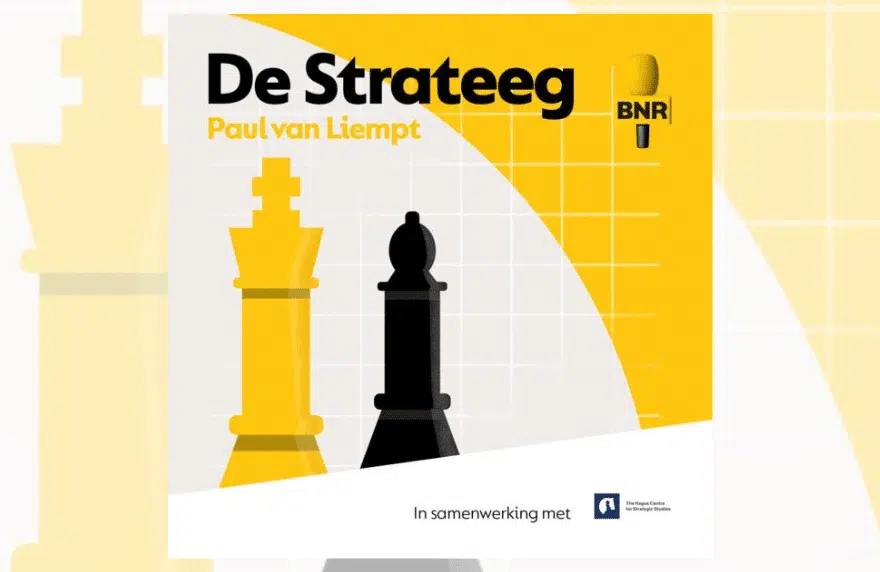
De Strateeg: Wat kunnen we leren van 1 jaar oorlog in Oekraïne?
De oorlog in Oekraïne duurt inmiddels een jaar. De Oekraïners hebben dapper weerstand geboden tegen de Russische agressie, die op 24 februari van vorig jaar begon met een inval vanuit 4 kanten. Wat hebben we kunnen leren van 1 jaar oorlog in Oekraïne? Analisten zijn het erover eens dat Rusland cruciale inschattingsfouten heeft gemaakt. Welke waren dat precies? En wat kunnen wij in het Westen leren van deze oorlog, met het oog op de toekomst. Want dat de oorlog nog wel even gaat duren, ook daar zijn veel mensen het wel over eens.
Europa Draait Door | Helga Salemon: “Poetin is een keizer zonder kleren. Prigozhin is een commandant zonder leger”
Prigozhin zette koers richting het Kremlin, maar keerde plots om. Waarom? Weet hij in Belarus open ramen en kopjes Novichokthee te vermijden? En wat is de kater van Poetin na dit weekend? Waarom kwam er bijna niemand voor hem op? We vragen het aan Helga Salemon, Rusland deskundige verbonden aan het Den Haag Centrum voor Strategische Studies.


Laura Jasper | Podcast: Disentangling Disinformation
What is disinformation, how does it work, and why does it matter? Disinformation and misinformation are nothing new, it’s had many names and guises, but Russia’s invasion of Ukraine has brought conflict into our media like never before. With that comes a barrage of disinformation. In this first episode of the new podcast series “Disentangling Disinformation” produced by the British Embassy in the Netherlands, HCSS strategic analyst Laura Jasper pins down what disinformation is and what it is not, how it works and how we can prepare ourselves for it.
Key Media Mentions and News items
How Wars End | So kann der Ukraine-Krieg enden
An end of the war between Russia and Ukraine is not yet in sight. But in what possible ways could the conflict eventually come to an end? The German YouTube channel “MrWissen2go“, a joint collaboration of the German broadcasting corporations ARD and ZDF, tries to answer that question in this explainer video, which references the Zeit article “Ende des Ukraine-Kriegs: Verhandeln?” and the HCSS publication “How Wars End” as a source. Watch the German video by presenter Mirko Drotschmann here.


Newsweek | What Ukraine Must Do Before Counteroffensive Hits ‘Decisive Phase’
These are still the earliest stages of the Ukrainian counteroffensive, HCSS experts Frederik Mertens and Paul van Hooft analyze in Newsweek. This kind of early phase is characterized by testing for the weaknesses in Russia’s defenses. Ukraine will need to decide where to put its main assault forces before its long-anticipated counteroffensive hits its “decisive phase,” according to new analysis.
Newsweek | How Russia Lost ‘4,000 Tanks’ in Ukraine
In an update posted to social media, the General Staff of Ukraine’s Armed Forces said that Russia had lost a total of 4,006 tanks since February 24, 2022. Tank losses of around 4,000 for Russia do seem “probable”, strategic analyst Frederik Mertens of the Hague Centre for Strategic Studies (HCSS), told Newsweek. Moscow has been beset by organizational and planning failures, ruptures in the command chain, poor training and unmotivated troops after the best were wiped out in the first waves of the war, leaving few to train the next generation of tank crews, analysts say.


NOS op 3 | Wagner. Het Russische huurlingenleger, uitgelegd
Wat ooit een mysterieus, geheimzinnig privéleger was, is nu wereldberoemd: de Wagner-groep. De strijdgroep is actief in Afrikaanse landen en heeft een cruciale rol in de oorlog van Oekraïne. Maar het is veel meer dan dat. Wat is de Wagner-groep en wie is de leider, Jevgeni Prigozjin, precies? Dat zie je in deze explainer video van NOS op 3. Met dank aan: Mik Dijkman, militair-deskundige aan het Clingendael Instituut, Wouter Capitain van Universiteit Utrecht en Frederik Mertens, militair historicus aan het Haags Centrum voor Strategische Studies.
Telegraaf | Militair experts positief over nieuwste NAVO-lid
“Een strategische blunder van Rusland om de Finnen in de armen van de NAVO te drijven.” Met Finland als nieuw lid heeft de NAVO er een geduchte krijgsmacht bij, leggen defensie experts Frederik Mertens, Frans Osinga en Patrick Bolder uit in de Telegraaf. De Finnen zijn massaal bereid de wapens op te nemen tegen de Russen met hun concept van ’totale verdediging’. Ervaring met vechten tegen de grote oosterbuur hebben ze ook, en daar kijken de Russen niet graag op terug.



